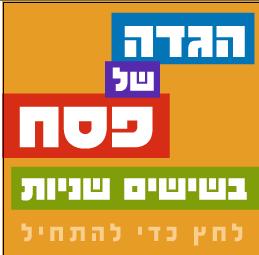Da'as Torah approved website
http://www.gimel2006.com/


This year in Yerushalayim!
Jameel & Co.
The Muqata, Inc.
Promoting Aliya since 1874
JERUSALEM (Reuters) - An outbreak of deadly bird flu in Israel is God's punishment for calls in election ads to legalize gay marriages, according to Rabbi David Basri, a prominent sage preaching Kabbalah or Jewish mysticism.
The bird flu outbreak stemmed from far-left political parties "strengthening and encouraging homosexuality," Rabbi Basri's son quoted him as saying.
Q. I have been teaching for six years and, baruch hashem, I'm doing very well. I know I'm well liked by all. I'm writing to you because, unfortunately, during my first year of teaching I was very hard on a three year old boy in my class. I'm afraid I abused him emotionally and physically. for example, I often made derogatory statements like "You're such a baby." I also hit, scratched and punished him very often. This, despite the fact that he was very good. I don't know what got into me then but now, six years later, I still can't forgive myself! I never harmed a child since. On the contrary, I'm exceptionally warm to them. I really love children!
Please help me get over this. I cry every night and can't sleep. When I see this child now and talk to him, he speaks to me normally but who know what he thinks inside? Who knows how much damage I did to him?
A. The Chozeh of Lublin once took several talmidim on a trip. The coachman was unable to control the horse and it took off, getting lost in a forest. On Friday afternoon they entered a village and went to shul. When everyone had left, the elderly shammes invited them to his home. "I don't have much to serve you" he said, "but for guests who are dressed in weekday clothes,
it will be enough. Where are you from?"
When they said Lublin, the shammes said "I hear there is a tzaddik in Lublin whom they call the Chozeh. Have you met him?" When they said yes, he said, "You have a zechus that you know Yaakov Yitzchok."
"Have you ever met Yaakov Yitzchok?" the Chozeh asked.
The shammes sighed. "Yes, Itzik'l was a bit wild. I was his melamed. He often ran away from cheder. I would punish him and beat him. One day I went to look for him and found him on the outskirts of town. He was lying on the grass with his hands streched to the sky, repeating Shema Yisrael. I realized then that he was not a usual child. I never beat him again but I am heartbroken that I beat him so many times. How can he ever forgive me"?
The Chozeh said, "I am Yaakov Yitzchok, and I forgave you many years ago."
So, my friend, you are in good company.
There was an incident with Reb Zalman of Volozin who never forgave himself for having offended someone. The Gaon of Vilna told him that a person has an obligation to do teshuvah and ask forgiveness from someone he offended. If he cannot locate the person to ask forgiveness and sincerely regrets his action, he can be sure that Hashem will put it in the other person's heart to forgive him.
Your treating children now with extra sensitivity and kindness is the way of teshuvah, of rectifying a mistake. Continuing to castigate yourself and feeling miserable will not help the child. It is appropriate that you ask mechillah and tell the child that you are sorry for having treated him that way. Inasmuch as he is still a minor, you should ask mechillah again when he turns thirteen.
Y-Love (Yitz Jordan) is an MC unlike any other. He is a black convert into the Bostener sect of chassidus (the mystical branch of Orthodox Judaism). He is among the most innovative freestylers on the scene, weaving seamless polyglot rhymes in English, Arabic, Yiddish, and Hebrew. Most unique is Y-Love's revival of Aramaic, the ancient language used to discuss Jewish Law. With each word he spits in the tongue of the Talmud, Y-Love breathes new life into Hasidism, and hip-hop, one beat at a time.
Saw this on Orthodoxanarchist.
On yom Kippur, when the Kohen Gadol exited the Kodesh HaKodoshim he said a prayer for the welfare of the Jewish people in the upcoming year. After he completed that he added a special prayer for the Anshei HaSharon. These were people who lived in the mountains where the land was unstable and prone to earthquakes and mudslides. This was his prayer: "May it be Your will that their homes should not be their graves".Now, I'll be very honest. This editorial surprised me. Alot. I did not expect it from the Yated. I expected them to pretty much ignore the whole thing or to report on it as if it had nothing to do with their readership. Sort of like a tragedy in Zimbabwe.
Now, we might ask ourselves, is it smart to live in an area like that? Were there not safer places in Israel to live? The answer is that it probably was not very smart to live in these places. If the Anshei HaSharon would have asked the daas torah of the time, the would have been told not to live there. But for the Kohen Gadol, all that was irrelevent. As the representative of Klal Yisroel his job was to pray for the wellfare of all Jews regardless of if he personally agreed with their chosen lifstyle. They were his brothers. It's as simple as that.
The same is true for the residents of Gush Katif and the other settlements. Ideological, we may not agree on very much. However, they are still our brothers and they are in pain. It's as simple as that.